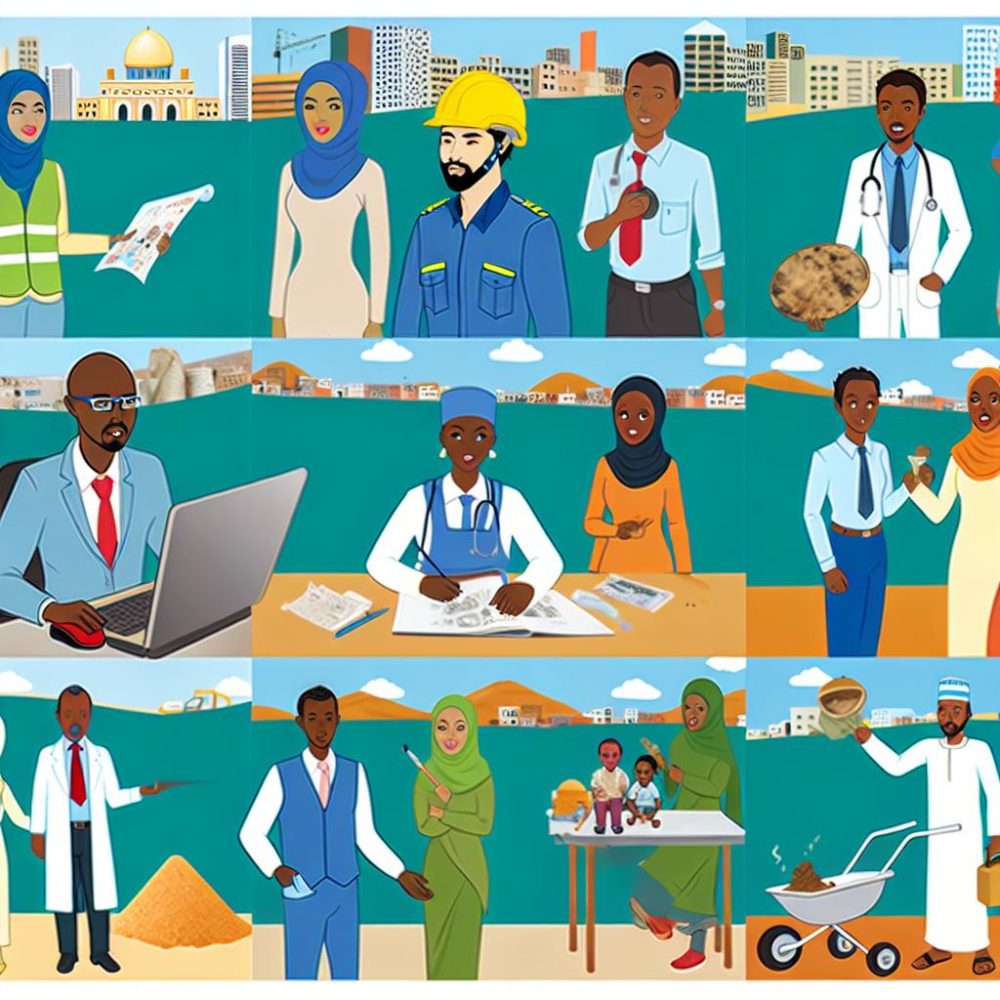
The Contribution of the Somaliland Diaspora to Rebuilding Efforts
The history of Somaliland is one marked by resilience and self-determination. Declaring independence from Somalia in 1991 amidst rampant civil strife, Somaliland has since embarked on a journey of rebuilding despite its lack of international recognition. Over the decades, one group that has been pivotal to these efforts is the Somaliland diaspora. The contributions of this community span across multiple dimensions, significantly bolstering the region’s development efforts.
Economic Contributions
The economic contributions of the Somaliland diaspora are undoubtedly substantial. At the heart of these contributions lie remittances. Annually, it is estimated that the diaspora sends approximately $500 million back to Somaliland. These remittances form a critical financial lifeline for many families, simultaneously stimulating local economies. Many individuals and households rely on these funds for basic necessities such as food and shelter, while others channel them into education, healthcare, and small-business investments.
Beyond remittances, members of the diaspora have taken proactive steps by investing in several key sectors within Somaliland. These sectors include telecommunications, education, healthcare, and real estate. Such investments not only generate employment opportunities but also facilitate economic diversification. Many of these sectors serve as pillars for the economic structure of the region.
Business Ventures
A notable facet of these economic contributions is the establishment of new business ventures by diaspora returnees. Driven by a desire to make a tangible impact in their homeland, many members have returned to establish enterprises, thus creating a ripple effect within the local economy. Key areas of innovation and investment include technology and telecommunications. The burgeoning tech scene in Somaliland is largely attributed to these members, with the region now seen as an emerging hub for innovation within the Horn of Africa.
Social Contributions
Aside from economic interventions, the Somaliland diaspora has also been instrumental in improving social infrastructure. Education, in this regard, has received substantial support. Financial contributions from the diaspora have facilitated the establishment of numerous schools and universities across Somaliland. This endeavor has not only improved access to education but also resulted in higher literacy rates and better educational outcomes for the youth. This emphasis on education serves as a cornerstone for future growth and human capital development within the region.
Healthcare is another sector in which the diaspora’s contributions have been significant. Funds sent from abroad have enabled the construction of hospitals and health centers throughout Somaliland. Additionally, these funds have supported various health programs targeting critical issues such as child mortality and infectious diseases. The boost in healthcare infrastructure and services has led to measurable improvements in public health outcomes.
Cultural Exchange and Identity
The impact of the diaspora extends beyond financial and infrastructural contributions; it is also deeply rooted in cultural exchange and identity preservation. By organizing and participating in cultural exchange programs both within Somaliland and internationally, the diaspora has effectively bolstered the cultural heritage of the region. These programs serve as platforms for cultural expression, thus fostering a sense of community, unity, and pride amongst Somalilanders.
Political Influence
On the political front, the diaspora’s influence can be felt both within Somaliland and in international arenas. Despite Somaliland’s continued struggle for international recognition, the diaspora has actively undertaken advocacy to raise awareness and support for these political aspirations. Their efforts include lobbying foreign governments, participating in political dialogues, and contributing innovative ideas for governance and democracy within Somaliland. Additionally, by engaging in Somaliland’s electoral processes, the diaspora plays a crucial role in shaping the political landscape.
Challenges Faced by the Diaspora
Nevertheless, the contributions of the Somaliland diaspora do not come without challenges. One of the main challenges faced involves integration issues in host countries. Many members of the diaspora grapple with dual identity dilemmas and face barriers to economic participation both abroad and back in Somaliland. These challenges underscore the need for ongoing collaboration between the diaspora and local communities to ensure these issues are addressed and overcome effectively.
For those who wish to delve deeper into the impact and initiatives of the Somaliland diaspora, a closer look at organizations and networks such as the Somaliland diaspora network can yield valuable insights into their efforts and ongoing projects.
In conclusion, the contributions of the Somaliland diaspora to the region’s development cannot be overemphasized. Their involvement spans economic, social, and political domains, making them a driving force in Somaliland’s rebuilding efforts. These contributions serve as a testament to the powerful role diaspora communities can play in shaping the future of their homelands, highlighting the importance of their continued engagement in the development process.